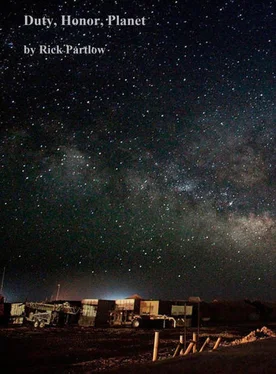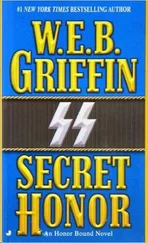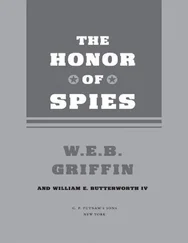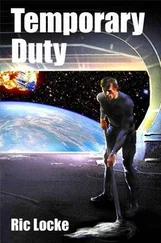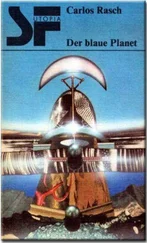“Have you ever heard of Enrico Fermi?” Mellanby asked him.
“Twentieth Century particle physicist,” McKay replied, fishing through his memory. “I think there’s a big lab somewhere in the US named after him.”
“He’s also well known for a simple question he once asked. Given that the events that brought about life on Earth can be duplicated—which, by the way, has since been proven—and given the vast number of Earthlike planets which must exist in this galaxy alone, and the fact that at least some of these worlds must be older than ours, there should be intelligent life somewhere in the galaxy much more advanced than us.
“So, he asked, where are they? Why haven’t we detected their radio waves or seen their starships? It was perplexing even before FTL travel was proven possible, and it’s at least a hundred times worse now. Earthlike planets not only exist, but they’re relatively common, as is complex, carbon-based life. So now, the question isn’t just ‘where are they?’ but,”—he waved again at the map—“where in the bloody hell are they?”
Sitting down on the corner of his desk, Mellanby reached over and hit a control. “Computer, project program Mellanby Three on holographic display.” The computer silently obeyed, and eight red dots appeared on the map at seemingly random locations, scattered among the human colonies. McKay leaned forward in his chair to peer curiously at the projection. “You’ve no doubt heard rumors about the ships that have disappeared throughout the years. Oh, God knows, we expect some losses. We’re talking about star travel, after all. But a few have been more than just navigational errors.”
He stabbed a finger at the display. “These ships, all eight, were found by Fleet expeditions in the last five years. Even to the Senate Security Committee, the President admits to only five of them, the five that were unmanned cargo ships. The other three were colony ships.”
“Holy Christ,” McKay breathed, thinking of the ten thousand emigrants crammed into each of the huge, tanker-like ships. “What happened to them?”
“Something… some one brought them out of FTL, somehow, blew a hole in their hulls and stole their cargoes, reactors, fuel… and passengers.”
“Aliens,” McKay muttered, slowly shaking his head.
“Perhaps, perhaps not. No one can say for sure. But I do know that no natural phenomena made those cargoes and reactors disappear. And I have no patience for such fantasies as the notion of the Belt Pirates acquiring starships. Perhaps, in time, star travel will be advanced enough for anyone with the money to build their own ship; but, at present, the only motive force powerful enough to take advantage of the Eysselink Effect is antimatter, and its manufacture requires too much energy to go unnoticed.
“So we have finally come face to face with the unknown, though through a glass darkly, as it were. And they have not proven friendly.”
“But what does this have to do with my job here?” Jason wondered.
“I recruited you, McKay, because you’re a warrior, and I believe the time is coming when the Republic will need warriors.”
“Sir,” McKay protested, “three months ago I was convinced I was about to be cashiered out of the Corps, and I decided I didn’t mind. Because I was tired of the killing, tired of cleaning up other people’s messes. I think you have the wrong guy.”
“I said you were a warrior, not a killer. Killers are a dime a dozen—the Colonial Guard’s full of them. Warriors are a little harder to come by. You’re a student of history—you’ve surely heard of the United States Army Special Forces? The British Special Air Service? The Russian Spetznaz?”
McKay shrugged. “I believe I heard something about them in Officer’s Training.”
“They were the most highly-trained soldiers in each nation’s military, the elite. They were sent in to perform missions that were inappropriate or impossible for conventional forces to accomplish. After the formation of the Republic, they were considered unnecessary and were disbanded, along with the other national armies.”
“But you think something like that is necessary now,” Jason surmised.
“Not at the moment, but soon. And it has to start somewhere. The people I need for this team aren’t just gung-ho, by the book types. I want people who can think, who can see things from a different angle, who can operate on their own and adapt to changing circumstances. That’s why I chose you to lead it.” He jabbed an accusatory finger at McKay. “Any other Marine officer would have seen your operation on Inferno as a great success because you followed orders and accomplished the mission. You saw it as a failure because it could have been done better. I don’t have time for people who are slaves to book-doctrine or who blindly follow orders and that get soldiers killed unnecessarily.”
McKay fell silent for a moment, head spinning at the possibilities. When he spoke again, he knew he had made his decision.
“And the rest of the team?”
“I’ve selected four others to form the core of the first team. They’re still in training. The rest we will recruit together as the need presents itself.” Mellanby’s expression softened. “You know, Lieutenant McKay, not so many years ago I was in the same position you are now: tired of the killing and the dying, tired of the Marine mentality. I got lucky, got to build Fleet Intell in my own image and build my own niche. Maybe you can do the same with this.”
McKay stood and looked Mellanby in the eye.
“I’ll do my best, Colonel,” he promised. “But what do I do now?”
“First you’ll be getting an abbreviated course of the training the others are going through right now,” Mellanby told him. “Just a couple weeks of refresher training in small arms and hand-to-hand. After that…” Something tugged the corners of his mouth upward. “After that, I’ve arranged a little ‘getting-acquainted’ mission for you, just to give you all a chance to work together for a while, form some team cohesion. I’m sure you’ll appreciate the opportunity.”
Something told McKay that whatever this mission was, if the Snake found it humorous, Jason McKay was not going to find it funny at all.
“Politics is war without violence.”
—Stokely Carmichael
Valerie O’Keefe stared silently out the window at the glittering New Jerusalem that was Capital City, brilliant in the reflected radiance of the morning sun. The first of the new megalopolises to be built after the Crisis, Capital City was an interconnected, independent structure six and a half kilometers on a side—in essence, one building, partially roofed over, with an independent power source in the form of a solar power satellite rectenna outlying the city.
The city was built within sight of what was left of New York, and the contrast between the high-tech dream city and the abandoned skyscrapers whose usefulness had been lost in the rising tides of history had always impressed Valerie. It was a dichotomy that fit the Republic’s government as well as its architecture.
The Republic was a phoenix risen from the ashes of the Sino-Russian War. The Crisis that had resulted from the war between Chairman Xiang’s radical People’s Republic and the New Russian Empire of Sergei Pavlovich Antonov, the self-styled “Napoleon of Eastern Europe,” had threatened to push an Earth teetering on the edge of ecological and economic doom over that precipice. One man had built the bulwark that had rescued the planet, declaring international martial law. He had shut down all polluting industry and shifted it into orbit, pouring a huge effort into research on methods of cleaning up the preexisting pollution along with the radioactive contamination from the war.
Читать дальше
